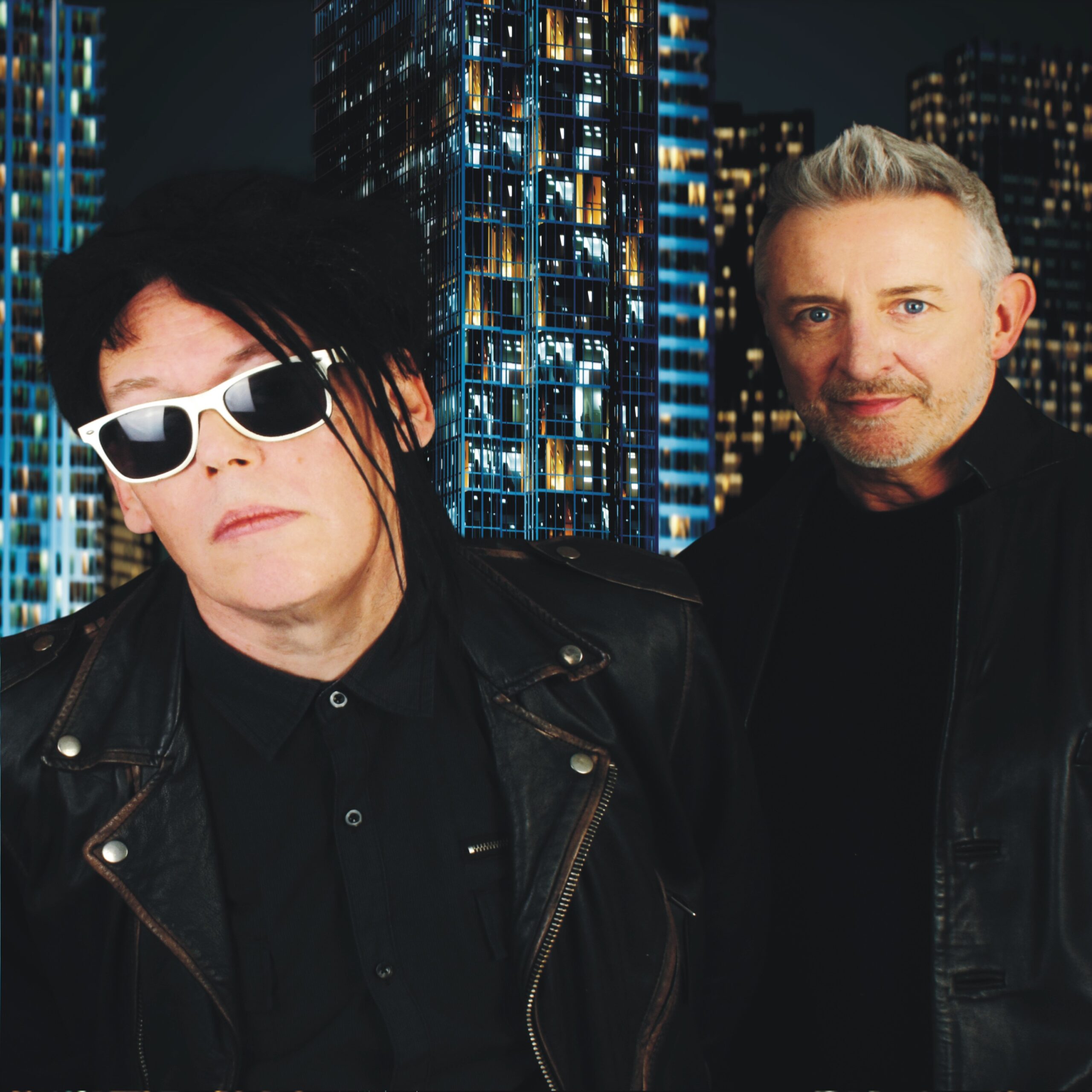Calling All Astronauts returns with a thunderous statement that demands to be heard. Released on July 11, via their own supersonic media, their fourth studio album Noise Against Tyranny is not just a music album, it’s a Resistance movement encoded in sound. Following their last album “Resist”, The London based duo, David B (vocals, programming, production) and Paul “Buzz” McCrudden (guitar, bass, keys) emerge sharpened and fearless. Known for their politically charged blend of electro, goth, post-punk, industrial metal, and EDM, Calling All Astronauts have never followed trends. With Noise Against Tyranny, they’ve obliterated the mold entirely.

This is the album they were born to make and little wonder, it took four years to perfect it. An album that brims with creative autonomy. The bar was high, and the band smashed right through it. There’s only one band that could make a 10-track album this astounding and that band is none other than “Calling All Astronauts”.
Calling All Astronauts don’t fit neatly into any box—and that’s exactly the point. This album moves between metal-infused drum and bass, shoegaze spoken-word, and a constant undercurrent of industrial menace. Guitars screech like warning sirens, synths flicker like faulty neon signs, and vocals range from whispered dread to loud defiance.
Track By Track Analysis:
-
- Pray for your soul: A strong, explosive opening. An opening that shows that they are not here to whisper. Heavy beats, sharp synths, and vocals that draw attention. It’s about calling out lies in politics and religion. This song sets the tone: bold and direct.
- 2. Will somebody help me: This track trades aggression for introspection. The vocals feel submerged—like a voice screaming underwater. It’s a desperate cry wrapped in digital fog, and its slow tempo hits like a funeral march for hope. A cry for help in a world that has lost it’s way.
- 3. War on truth: One of the album’s most relevant moments. A powerful message about fake news and the dangers of misinformation. The intro builds tension before the song bursts into a storm of sound. It’s angry, serious, and important.
- 4. More than you need: A rare moment of stillness and self-reflection. The arrangement breathes; vocals soften. This track questions modern obsession, pressure, and emotional exhaustion. It feels like a sigh in a war zone, a reminder that vulnerability is also a form of resistance.
- 5. Time to party: Not your typical party song. It has a fun beat, but the lyrics are about how people use parties and distractions to ignore real problems. The beats are club-ready, but the tone is cold and critical.
- 6. I can’t breathe: One of the album’s most harrowing moments. The title alone carries significant cultural weight, and Calling All Astronauts approach it with reverence and rage. It’s slow, suffocating, and emotionally devastating. The sonic restraint is only an addition to the gravity.
- 7. Take me to hell: Short and brutally efficient. A blast of industrial grit that echoes rebellion. Less polished, more primal. It channels the raw edge of underground punk and industrial noise with zero pretension.
- 8. No way out: A tense, dark song that feels like being trapped. The beat keeps building, and you can feel the pressure rise. It’s about feeling stuck and overwhelmed.
- 9. Old world: A blend of sadness and anger about the past. It’s a reflection of how the “old ways” shaped the problems we have today. It’s quiet but powerful.
- 10. 1979: The longest and most dream-like track on the album. Soft synths, robotic vocals, and a hypnotic rhythm take you into a different space. It’s the perfect closing song—haunting and thoughtful.
Ten tracks packed with political and social commentary moving boldly between styles all tied together by a steady pulse of industrial energy. In a time when the world has become quiet, if anything, fascism, nationalism, disinformation, and cultural division have grown louder, Calling all astronauts are turning up the volume in response.
Noise against Tyranny is not just an album or playlist; it is an emotional journey with a personal theme. This album shows that Music can be whatever we want it to be. It could be powerful while still asking the hard questions. Music can be a weapon of truth. This album is a mirror held up to a broken world.
SOCIAL LINKS
